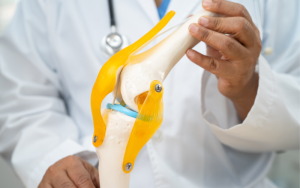
A public health incident occurred in Stoughton, Wisconsin, between October 22 and 24, 2024, when 85 individuals became ill after consuming food contaminated with tetrahydrocannabinol (THC), which is the main psychoactive component of cannabis. Public Health Madison & Dane County (PHDMC) assessed the exposure and found that individuals experienced mild to moderate symptoms, including dizziness, drowsiness, anxiety, and in some cases, required hospitalization. The investigation determined that the source of contamination was hemp-derived THC contained in the cooking oil, which had inadvertently contaminated the meals served to customers, leading to widespread consumption among diners.
The incident was first reported on October 24, when the local emergency services advised PHMDC that seven individuals had presented to the hospital with symptoms associated with THC intoxication.
All reported having recently eaten at the same restaurant. Initial tests for carbon monoxide poisoning in their homes and at the restaurant were negative. Emergency department staff confirmed that their symptoms aligned with THC intoxication. One patient reported eating pizza from the restaurant and subsequently tested positive for THC, without any identified history of cannabis use, which prompted the PHMDC to launch an outbreak investigation.
The restaurant voluntarily closed on the same day PHMDC contacted the owner. During the investigation, the owner disclosed in discussions that a state-licensed vendor in the same building used a shared kitchen to produce THC-infused edibles. On October 22, after the restaurant ran out of its regular cooking oil, staff used oil from the shared kitchen, believing it to be canola oil. Later, the owner discovered that the oil may have contained THC. Laboratory testing determined that THC was present in the oil taken from a labelled storage container located near the replacement oil used in food preparation.
Local law enforcement was notified. After an investigation, the law enforcement agency concluded that the food contamination was unintentional, and no criminal charges were filed. The restaurant reopened on October 26, 2021, after fulfilling all sanitation standards by the Wisconsin Food Code.
PHMDC promptly took steps to inform the public. A food and symptom questionnaire was published on the website and sent out for media releases and social media. People who had eaten at the restaurant on October 22 or 24 and had symptoms were asked to participate. Of 208 responses received by October 30, 107 were considered valid. The other 101 responses were disregarded as they contained incomplete or fictitious information.
A case of THC intoxication was established: symptoms such as dizziness, anxiety, nausea, paranoia, or hallucinations within five hours of consuming specific food items (such as pizza, garlic bread, cheese bread, or grinders) from the restaurant. Eighty-five individuals met this case definition. The median age of affected individuals was 43 (age range 1-91 years), with 47 males and 38 females. There were 33 that sought medical care; of those, three were hospitalized overnight. Of all who completed the survey, 15 tested positive for THC. Eight children under 18 years of age were impacted, though none of the eight persons required hospitalization. The youngest child, a 1-year-old, experienced only mild dizziness.
On October 24, PHMDC issued a press advisory warning against eating leftover pizza and later expanded it to include bread items. These warnings were posted on social media, the blog, and the department’s website, which reached approximately 3,000 subscribers.
Although no leftover food samples were tested and no comprehensive toxicological analysis was conducted, the incident raised concerns about accidental exposure to THC. In this connection, the possible dangers of the co-location of food operations and THC product manufacturers, particularly with missing or inadequate labelling, segregation, and storage controls, are inadequate or absent.
Importantly, no cannabinoid, including THC, is currently approved by the U.S. FDA as a safe food additive under the Federal Food, Drug, and Cosmetic Act. Experts have since called for more rigorous regulations on product labeling and storage to prevent similar events in the future. Public health officials emphasize the need for medical practitioners to consider THC intoxication in patients with sudden-onset, unexplained symptoms after food consumption.
References: Kita-Yarbro A, Moccero S, Brobston K, et al. Tetrahydrocannabinol Intoxication from Food at a Restaurant – Wisconsin, October 2024. MMWR Morb Mortal Wkly Rep. 2025;74(27):439-442. doi:10.15585/mmwr.mm7427a2













